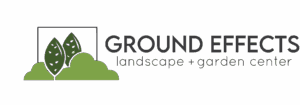Borers– Borers are a group of insect pests that spend part of their adult or larval life stage feeding inside roots and branches, or tunneling beneath the bark or into the heartwood of many trees and shrubs. Many species of boring insects are capable of causing internal damage to a wide range of plants. As adults, they may be either beetles or clear-winged moths.
Plant injury caused by borers can be long lasting; moderate to heavy infestation can cause death of the plant. Any plant can be susceptible, but it is generally believed that wood borers are secondary pests that develop because trees and shrubs are stressed, injured, or dying from other causes. Plants most susceptible to borer attack are those stressed from recent transplanting, drought, repeated defoliation, mechanical injury (mowers, grass trimmers), or other causes.
- Identified by Holes in bark, tunneling in the cambium layer, and holes into heartwood.
- Keep in mind, if the tree is showing symptoms, the damage may be irreversible. The best means of treatment is preventive, or as soon as you see holes in the trunk/crotches of trees.
- Examples:
- Emerald Ash Borer- No cure only prevention. We offer injection services.
- Lilac Borer
- Peach Tree Borer
- Treatments-
- Most borers are below the surface of the tree, so contact insecticides are not always effective
- Systemic Insecticides become a part of the tree tissue, so the borers are ingesting their poison.
- Retail Offerings
- Tree and Shrub Drench (Imidacloprid) Systemic
- Dormant Oil– Non- toxic Preventative spring application applied right before leaf break.
- Triple Action (pyrethrum) Contact Insecticide
Aphids– Aphids (plant lice) are common plant feeding insects. Small white/light green insects do not eat tissue but instead feed on vital lifeblood flowing through them. Aphid presence can manifest itself in curled leaves, leaf discoloration, or overall drooping of leaves and stems.
- Will typically not kill larger specimens such as trees or shrubs, Will cause more damage to annual plants and vegetables
- Will negatively impact the aesthetic appearance.
- Treatments
- Aphids present themselves on leaf and stem surfaces, so a contact insecticide is recommended
- Retail offerings
- Insecticidal Soap
- Triple Action (pyrethrum)
Scale- There are two types of scales: soft scales or armored scales. Both types live under a covering they produce.
- Soft scales-Feed on the phloem tissue of trees and shrubs. Scale insects will leave excess sap on leaves called honeydew. Honeydew will stick leaves together and also attract other insects.
- Armored scales-Feed on individual plant cells (instead of the phloem) and do not produce honeydew. Many armored scales match the color of the bark of their host tree and are not spotted until the damage is noticeable.
- Treatments
- Scale present themselves on the surface of stems and leaves, so a contact insecticide is effective. Systemic applications are also beneficial for longer lasting protection
- Retail offerings
- Tree and Shrub Drench (Imidacloprid) Systemic
- Dormant Oil– Non- toxic Preventative spring application applied right before leaf break.
- Triple Action (pyrethrum) Contact Insecticide
Spider mites– Microscopic insects that feed on sap of trees, shrubs, and plants. Can result in poor plant appearance, decline or death.
- Heavy infestations may have the presence of webbing.
- Spider mites are typically present on stressed plants, so keeping plants healthy is a great deterrent.
- Another test is to try shake a suspected specimen over a sheet of white paper, then swipe the paper with your hand. If red streaks appear, spider mites are a good suspect.
- Treatment
- Spider mites present themselves on the surface, making a contact insecticide a good solution to the problem. Systemic applications are also beneficial for longer lasting protection.
- Retail offerings
- Tree and Shrub Drench (Imidacloprid) Systemic
- Triple Action (pyrethrum) Contact Insecticide
